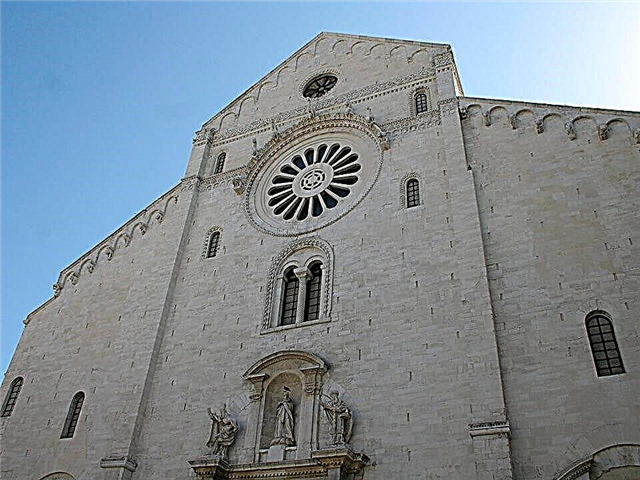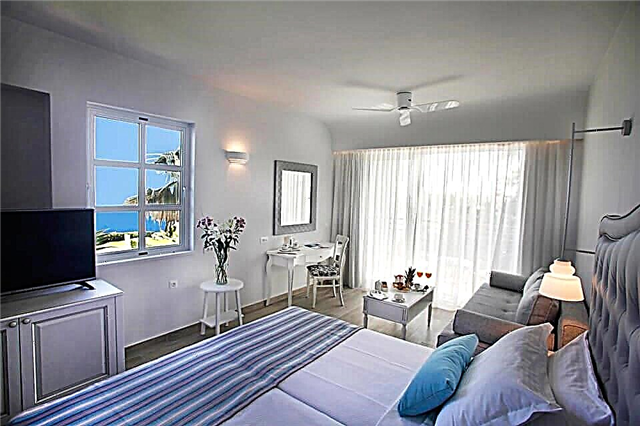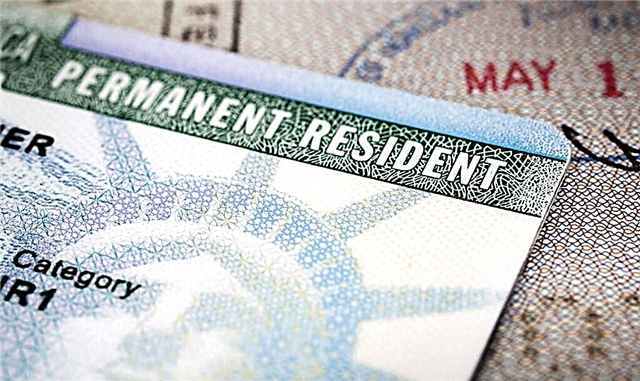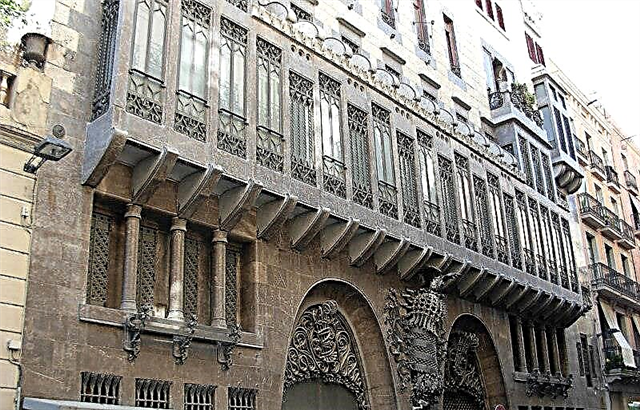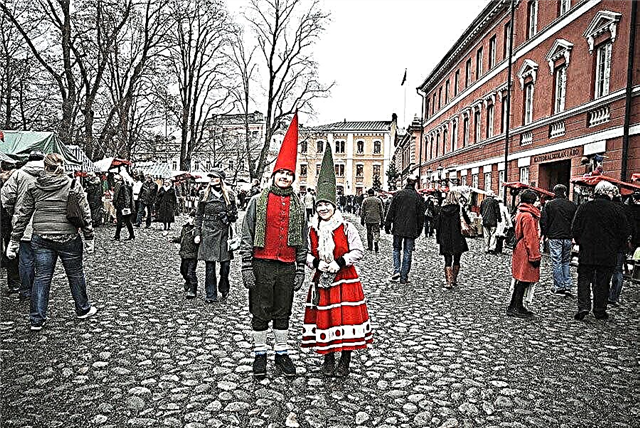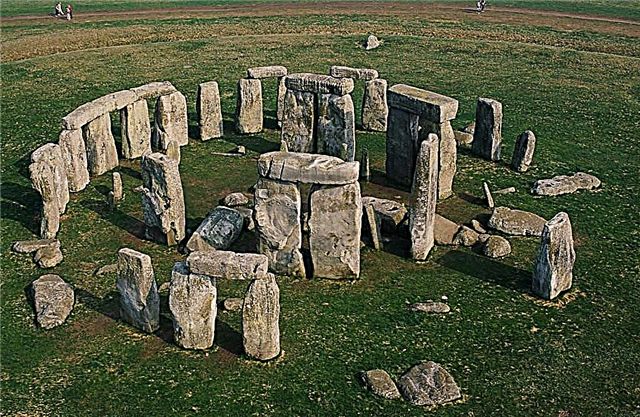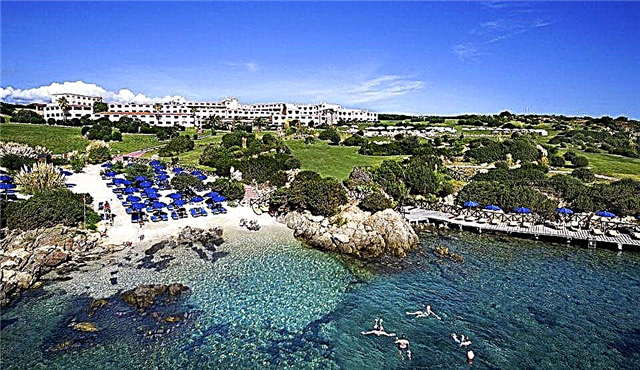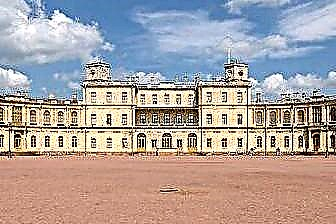Gatchina is a suburb of St. Petersburg, primarily known for its luxurious palace and park ensemble, which is included in the UNESCO World Heritage List. Due to its large size, it is necessary to allocate a whole day for inspection, while the rest, no less interesting parts of the city may be left on the sidelines.
In addition to the main attraction, there are several pretty churches in Gatchina, quiet streets are full of inexplicable charm, interesting collections are kept in museums and estates - it would be wrong to ignore all these places. Gatchina was considered the fiefdom of Grigory Orlov in the Catherine era and a key center of the aviation industry during the Soviet era, so the city has something to offer curious travelers.

The best hotels and hotels at affordable prices.
from 500 rubles / day
What to see and where to go in Gatchina?
The most interesting and beautiful places for walking. Photos and a short description.
Great Gatchina Palace
The complex was erected in the 18th century by A. Rinaldi for Count G.G. Orlov, the favorite of Catherine II. The predominant architectural style of the external appearance and interior decoration of the palace is Russian classicism. After the death of Grigory Orlov, the imperial family began to own the ensemble, after 1917 a museum was created on its territory, which began to be called the “suburban Hermitage”. During the Second World War, the buildings were seriously damaged; reconstruction began only in the 1970s and 1980s.

Priory Palace
Quite an original building, whose appearance will stand out against the background of other buildings in Gatchina. It was erected in the 18th century according to the project of N. A. Lvov. The building was erected by order of Paul I for the prior of the Catholic Order of Malta, who had a representative office in Russia. The first renovation took place in the 1880s. At the beginning of the 20th century, exhibitions began to be organized on the territory of the palace.

Monument to Paul I
The monument to the emperor was erected in the middle of the 19th century. The statue was created by the sculptor of Italian origin I.P. Vitali. The opening of the monument was accompanied by a solemn parade, which was attended by Nicholas I. In 1919, the revolutionary authorities tried to get rid of the statue of the hated Tsar for obvious reasons, but thanks to the efforts of the curator of the Gatchina Museum, the sculpture was preserved for posterity.

Cathedral of Saint Apostle Paul
Orthodox church in the pseudo-Russian style with the use of Gothic elements, built in 1852 according to the project of RI Kuzmin. The building has survived to our time in almost its original form, but the original interior decoration was lost during the Soviet period. The church contains valuable icons of past centuries and the relics of St. Maria Gatchinskaya.

Cathedral of the Intercession
The temple was erected right before the start of the 1917 Revolution with the money of a Gatchina merchant who decided to donate his random lottery winnings to a charitable cause. The consecration of the church took place in 1914, even before the completion of construction work. Services went on until 1939, after which a warehouse was organized in the building. After the collapse of the USSR, the building was returned to the Russian Orthodox Church and restored.

Church of the Intercession of the Holy Virgin
A religious building of the late 19th century, designed by D.I.Grimm and consecrated in the presence of Emperor Alexander III. For a long time it served as a parish church for the court gamekeepers. In the 1930s, all valuables were confiscated, and the interior was destroyed. The restoration began in 1940-50. The temple is ranked among the objects of cultural heritage of the Russian Federation.

St. Nicholas Lutheran Church
The Lutheran parish was founded in Gatchina in 1789. The first church for divine services was built of wood four years later. The stone church was built in the style of strict classicism in 1825 according to the project of D.I.Kvadri. In Soviet times, the church repeated the fate of almost all religious institutions in the country - it was plundered and closed, and the parish itself ceased to exist. After the restoration in 1995, the divine services were resumed.

Museum-Estate of P. E. Shcherbov
Memorial exposition of the cartoonist P. Shcherbov, housed in the original building of the early 20th century. The collection consists of two sections: the first is devoted to the history of Gatchina, the second - to the personality and work of Shcherbakov. The estate was built according to the plan of S. S. Krichinsky in the style of St. Petersburg Art Nouveau - a rather rare urban planning style.

Museum of the History of Aviation Engine Building and Repair
The museum exposition is located in the premises of the former aircraft factory, which are architecturally unique buildings. On an area of 800 m², there are models of aircraft engines that were previously produced and repaired at the enterprise. You can also see an exhibition of smaller scale aircraft models.

Monument to the submarine S.K.Dzhevetsky
In 1880, the Dzhevetsky submarine, the first serial submarine in the world, was tested in Gatchina. The monument is an exact copy of the vessel, made in a 1: 1 scale, was installed in 2006. The boat seems rather small, especially in comparison with modern devices, but do not forget that it was designed in the 19th century. The monument is located on the road to the Gatchina Palace.

Museum of the city of Gatchina
The exposition is located in the building of the former women's gymnasium, built in the 19th century. Museum exhibits are divided into four thematic sections: "Old Gatchina", "Military Hall", "Soviet Hall", "City of Military Glory". During a tour of the museum, you can get acquainted with the history of the city until the beginning of the 20th century, the fate of its inhabitants during the Second World War and the events of the Soviet period.

Constable
The architectural ensemble, consisting of an obelisk and a square, erected at the behest of Paul I. During a trip to France, the emperor was so impressed by a similar complex near Paris that he wanted to see something similar in his Russia. In 1881, a lightning strike destroyed the obelisk. Five years later, it was rebuilt on an even larger scale. In 2016, another restoration of the monument began.
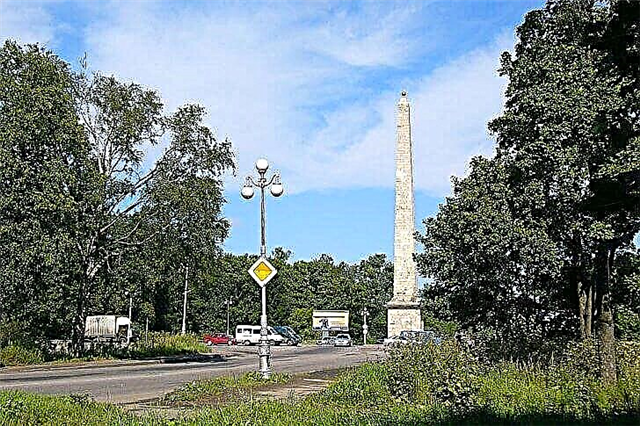
Chesme obelisk
The obelisk is located on the shore of the White Lake, a few hundred meters from the Gatchina Palace. Presumably, it was created by the architect A. Rinaldi. The monument is dedicated to the victory of the Russian fleet in the battle in the Chesme Bay (one of the episodes of the Russian-Turkish war). Since the commander of the squadron was Alexei Orlov, they decided to place the image of the obelisk on the family coat of arms of this family.

Pavilion of venus
One of the gazebos of the Palace Park, located on the shore of the White Lake. The building was built after another trip of Paul I to Europe, who liked a similar building in French Chantilly. The pavilion is made of wood, its foundation is made of slabs and stones. It consists of a vestibule and a Great Hall, decorated with ceiling paintings and stucco moldings in the palace style.

Eagle Pavilion
The building is adorned with the Palace Park, it stands on one of the islets of the White Lake. The pavilion is a rotunda building about 10 meters high. Due to its size and location on a hill, it is clearly visible from the banks. Presumably, it was erected at the end of the 18th century according to the project of V. Brenn. The last renovation took place in the 1970s.

Birch gate
Another architectural masterpiece of the Palace Park, erected in the 18th century according to the project of V. Gate is considered one of the best creations of the master within the framework of the park ensemble of Gatchina. The birch gate is part of the English Garden ensemble. The appearance of the sight is similar to the buildings of Ancient Rome - the same monumentality, solidity and symmetrical forms.

Birch house and the "Mask" portal
A composition that is part of the architectural complex of the Palace Park. It is an outwardly modest pavilion made of birch logs with luxurious interior decoration and an entrance portico, made in the best traditions of the classical style (it kind of disguises the entrance to the main building). The structure was built for the recreation of noble companies walking in the park.

Marina Terrace
In the 18th century, the pier was used for the ships of the Gatchina flotilla. The total length of the berth, located not far from the Gatchina Palace, is 51 meters. From the opposite bank of the White Lake, it looks like an integral part of the palace complex. In past centuries, fireworks and theatrical performances were often launched on the terrace.

Humpback bridge
The bridge connects the two islands of the White Lake. It was built according to the project of A. D. Zakharov in the style of "high classicism". The design serves not only practical purposes - it offers a beautiful view. The bridge was specially placed in such a good place so that the walking public could admire the beauty of the palace park for a long time. Previously, the building was decorated with a balustrade, but it has not survived to this day.

Karpin bridge
The passage is thrown over an artificial strait connecting the Karpin Pond with the White Lake. The name of the creator of the structure is unknown, however, it is believed that the same V. Brenn worked on it. The original bridge was destroyed during the Great Patriotic War and was restored in the 1980s. Today the attraction favorably emphasizes the picturesque appearance of the Palace Park.

"Birdhouse"
A pavilion built specifically for the maintenance of pheasants who took part in the imperial hunt. The building was erected according to the project of A. Zakharov in 1801. Until 1820 it was used for its intended purpose, after which it was abandoned and dilapidated. In the middle of the 19th century, the building was dismantled and rebuilt from more durable materials. It existed until the 1980s, but after a fire it turned into ruins.

Echo grotto
The grotto was created at the request of the first owner of the Gatchina Palace, Grigory Orlov. It is located on the shore of the lake and is connected by a secret passage to the ceremonial hall. "Echo" is a stone arch made of irregular boulders. The place got its name because of its unusual acoustic properties - the last syllables of the spoken word can be repeated 20-30 times if you stand in a certain place.

Museum-Estate Rozhdestveno
A classic mansion with a landscaped park located around, built at the end of the 18th century according to the project of an unknown author. At various times, the estate was owned by merchants and civil servants, after 1917 a dormitory was placed on its territory, after the end of the Second World War - a rural library. A historical exposition has been operating in the mansion since 2002.
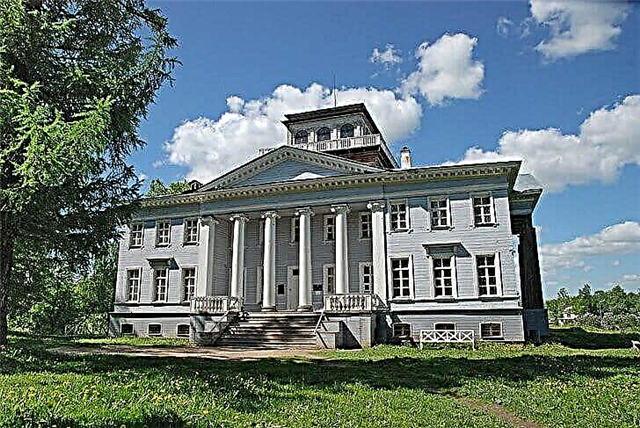
A centuries-old oak tree in the Silver Meadow
In the palace park of Gatchina there is a special tree that was planted under Count Orlov - an old spreading oak tree. According to an alternative version, it appeared much later, but even according to conservative estimates, this oak tree is at least 200 years old. The tree reaches a height of 20 meters. It successfully survived a powerful lightning strike in the 1970s that split it in two.

Gatchina parks complex
Gatchina can be called a city of landscape parks, arranged in the best palace traditions: with ponds, pavilions, bridges, small architectural forms and mowed lawns. Such places were created in imitation of the European tradition followed by Russian emperors in the 18th – 19th centuries. The complex includes the Palace Park and its separate parts - Sylvia, Priorat, Menagerie.


